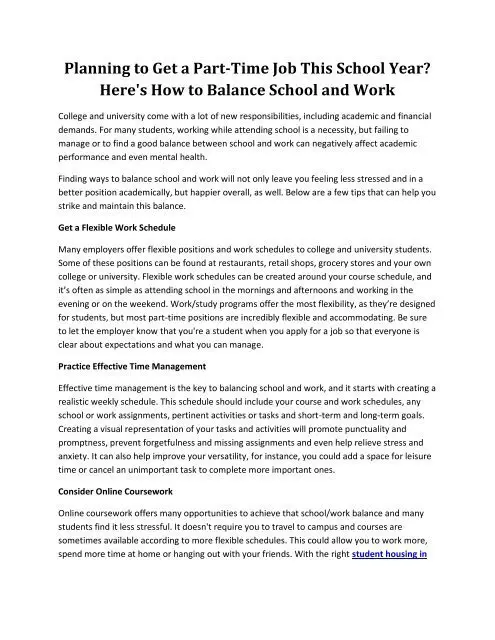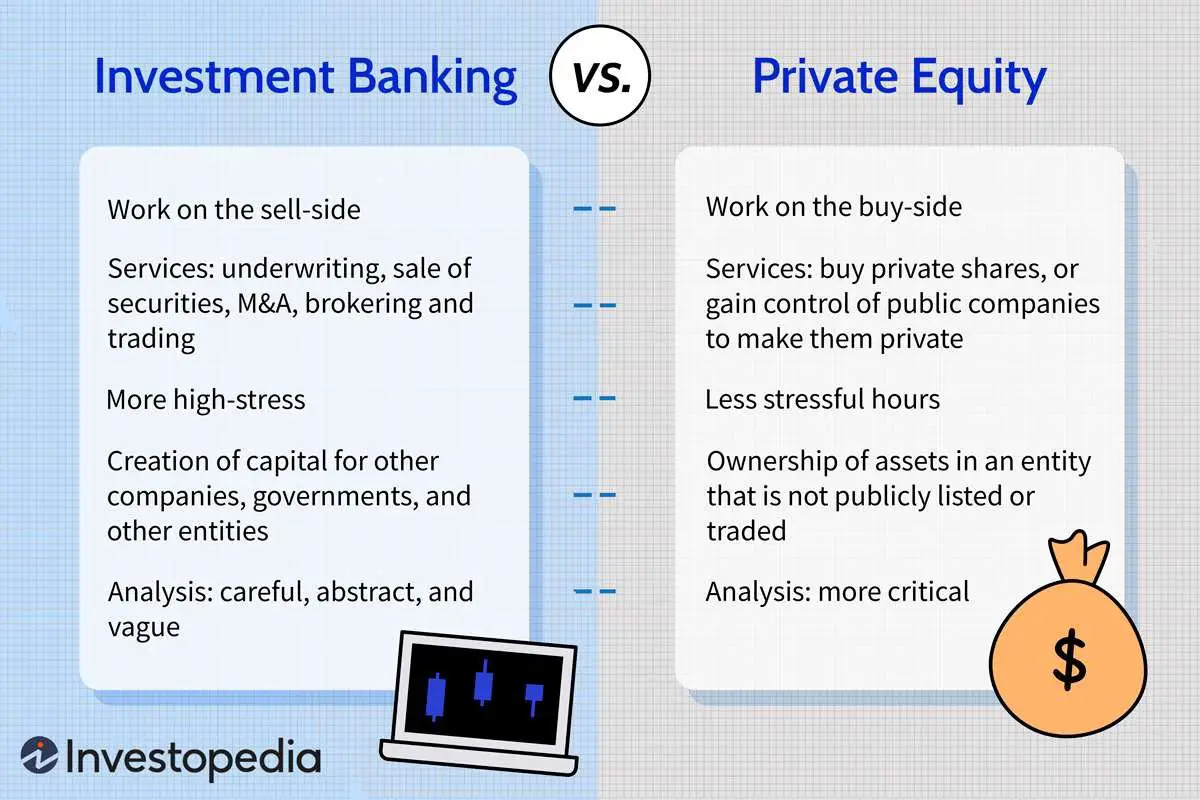Are you a part-time worker looking to effectively manage your finances? Look no further! In this article, we will discuss how to manage finances as a part-time worker and provide you with practical solutions to ensure you stay on top of your financial game. Whether you’re balancing multiple jobs or looking for ways to make the most of your limited income, we’ve got you covered. Let’s dive right into it and explore some tips and tricks for successfully navigating the world of personal finance as a part-time worker.
How to Manage Finances as a Part-Time Worker
Being a part-time worker comes with its own set of challenges, especially when it comes to managing finances. It can sometimes be difficult to make ends meet and achieve financial stability on a limited income. However, with the right strategies and mindset, it is possible to effectively manage your finances as a part-time worker. In this article, we will explore various tips and techniques to help you navigate your financial journey.
1. Create a Budget
Creating a budget is a critical step in managing your finances effectively. It helps you gain a clear understanding of your income and expenses and allows you to prioritize your spending. Here are some steps to help you create a budget:
- Track your income: Start by calculating your monthly income from your part-time job.
- List your expenses: Make a comprehensive list of all your expenses, including essentials such as rent, utilities, groceries, transportation, and any outstanding debts.
- Categorize your expenses: Categorize your expenses into fixed (e.g., rent) and variable (e.g., groceries) expenses.
- Set financial goals: Determine your short-term and long-term financial goals, such as saving for emergencies or paying off debts.
- Allocate your income: Allocate your income to cover your expenses and set aside an amount for savings.
2. Prioritize Essential Expenses
As a part-time worker, it’s crucial to prioritize your essential expenses. These include things like rent, utilities, groceries, and transportation costs. By prioritizing these expenses, you ensure that your basic needs are met before allocating funds for other discretionary expenses.
- Housing: Ensure that your rent or mortgage payments are made on time to maintain a stable living situation.
- Utilities: Budget for essential utilities such as electricity, water, and internet to maintain a comfortable living environment.
- Groceries: Plan your meals and make a grocery list to avoid impulse purchases and optimize your food budget.
- Transportation: Consider using public transportation or carpooling to save money on commuting expenses.
3. Minimize Discretionary Expenses
While it’s important to enjoy your earnings, it’s equally essential to minimize discretionary expenses, especially when you have limited income as a part-time worker. Here are some tips to help you reduce unnecessary expenditures:
- Evaluate your subscriptions: Review your subscriptions and cancel any that aren’t essential or that you no longer use.
- Eat out wisely: Limit eating out and opt for home-cooked meals as they are usually more cost-effective.
- Entertainment: Look for free or low-cost entertainment options such as community events, free concerts, or movie nights.
- Clothing and shopping: Avoid impulse purchases and consider buying second-hand or discounted items when shopping for clothes or other goods.
- Avoid unnecessary debt: Minimize credit card usage and avoid taking on unnecessary debt that can lead to high interest payments.
4. Build an Emergency Fund
Regardless of your income level, having an emergency fund is crucial. As a part-time worker, unexpected expenses can arise, such as medical emergencies or car repairs. Aim to save at least three to six months’ worth of living expenses in an easily accessible savings account.
- Start small: Begin by setting aside a small amount each month and gradually increase your savings over time.
- Automate savings: Set up automatic transfers from your paycheck to a separate savings account to ensure consistent savings.
- Consider side hustles: Explore opportunities for additional income through freelance work or part-time gigs to boost your emergency fund savings.
- Use windfalls wisely: If you receive unexpected windfalls such as tax refunds or bonuses, allocate a portion towards your emergency fund.
5. Seek Additional Sources of Income
As a part-time worker, exploring additional sources of income can help supplement your earnings and provide financial stability. Here are some ideas to consider:
- Freelancing: Leverage your skills and talents by offering freelance services in your spare time.
- Part-time work: Look for opportunities to take on additional part-time work that aligns with your skills and interests.
- Online gigs: Explore online platforms that offer gig-based work, such as completing surveys or participating in market research.
- Monetize hobbies: If you have a hobby or passion, consider ways to monetize it, such as selling handmade crafts or offering tutoring services.
6. Stay Financially Informed
Keeping yourself informed about personal finance matters is essential for managing your finances effectively. Educate yourself on topics such as budgeting, saving, investing, and debt management. Here are some ways to stay financially informed:
- Read books and blogs: Explore personal finance books and blogs to gain insights from experts in the field.
- Attend workshops or webinars: Look for free or low-cost workshops or webinars that cover various aspects of personal finance.
- Follow reputable financial experts: Follow reputable financial experts on social media platforms for regular tips and updates.
- Join online communities: Engage with online communities focused on personal finance to learn from others’ experiences and share knowledge.
7. Plan for the Future
Planning for your future is important, regardless of your income level. As a part-time worker, you may have limited access to employer-sponsored benefits, such as retirement plans. However, there are still actions you can take to secure your future:
- Retirement savings: Explore individual retirement account (IRA) options and contribute regularly to build a retirement nest egg.
- Insurance coverage: Assess your insurance needs and consider purchasing health, life, or disability insurance to protect yourself financially.
- Investing: Learn about basic investment strategies and consider investing in low-cost index funds or exchange-traded funds (ETFs) to grow your wealth over time.
Remember, managing finances as a part-time worker requires discipline, planning, and a proactive approach. By creating a budget, prioritizing essential expenses, minimizing discretionary spending, building an emergency fund, seeking additional sources of income, staying financially informed, and planning for the future, you can achieve financial stability and work towards your long-term goals.
How I Budget my Paychecks ???? paycheck breakdown, bi-weekly budget with me & more
Frequently Asked Questions
Frequently Asked Questions (FAQs)
Question 1: How can I effectively manage my finances as a part-time worker?
As a part-time worker, it is important to create a budget and track your expenses. You can start by categorizing your income and expenses, prioritizing essential expenses, and finding ways to save money by cutting unnecessary costs.
Question 2: How should I handle irregular income as a part-time worker?
Managing irregular income requires flexibility and planning. You can set aside a portion of your earnings during peak times to create a buffer for slower periods. It’s also advisable to have multiple income streams to provide stability.
Question 3: What steps can I take to save money as a part-time worker?
There are several ways you can save money as a part-time worker. Some effective strategies include tracking your expenses, using coupons or discounts, buying in bulk, avoiding unnecessary impulse purchases, and finding creative ways to cut down on everyday expenses.
Question 4: How can I build an emergency fund while working part-time?
Building an emergency fund is crucial, even as a part-time worker. Start by setting a realistic savings goal and contribute a portion of your income regularly. You can automate your savings by setting up automatic transfers to a separate savings account.
Question 5: Is it possible to invest as a part-time worker?
Absolutely! Investing as a part-time worker is feasible. You can start by researching different investment options suitable for your financial goals, risk tolerance, and available funds. It’s important to consult with a financial advisor and consider long-term investment strategies.
Question 6: How can I pay off debts while working part-time?
To pay off debts while working part-time, it is advisable to prioritize your debts based on interest rates and create a repayment plan. You can consider consolidating high-interest debts, negotiating with creditors for lower interest rates, and making consistent payments to gradually eliminate your debts.
Question 7: What can I do to improve my earning potential as a part-time worker?
To enhance your earning potential, you can seek additional training or education in your field of interest. Acquiring new skills can make you more marketable and potentially lead to better job opportunities or higher-paying part-time positions.
Question 8: How can I plan for retirement as a part-time worker?
Planning for retirement is essential, regardless of whether you work part-time or full-time. It’s recommended to start contributing to a retirement account, such as an Individual Retirement Account (IRA), and maximize any employer-sponsored retirement plans or matches available to you. Consulting with a financial advisor can provide personalized guidance for your retirement goals.
Final Thoughts
Managing finances as a part-time worker can be challenging, but with a few key strategies, it can be done successfully. Firstly, creating a budget that aligns with your income and expenses is crucial. Tracking your spending and cutting back on unnecessary expenses can help you stay on track. Additionally, it is essential to save a portion of your income regularly and have an emergency fund for unexpected expenses. Exploring ways to increase your income, such as taking on side gigs or freelancing, can also provide financial stability. By implementing these practical tips, part-time workers can effectively manage their finances and achieve their financial goals.



